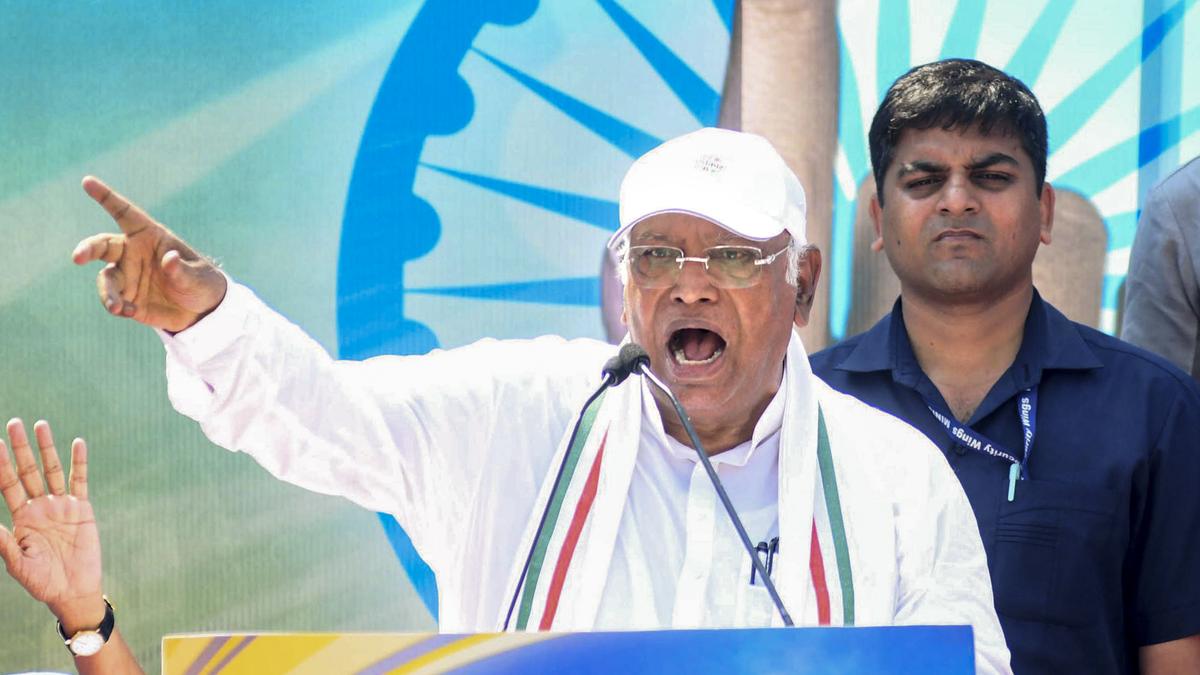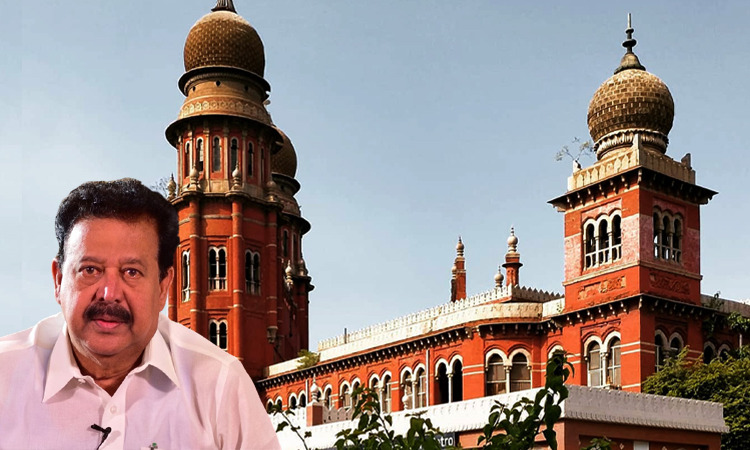In a dramatic escalation of the ongoing electoral controversy, a Congress MLA from Karnataka is preparing to approach the Supreme Court, demanding that the Election Commission of India (ECI) be directed to share crucial technical data with the state’s Criminal Investigation Department (CID). The dispute centers on alleged fraud involving nearly 6,000 votes in his constituency, which the MLA claims could have altered the election outcome. Despite repeated requests, the ECI has yet to furnish detailed records of voter lists, technical logs, and machine-related data. The MLA insists this lack of transparency undermines faith in democratic institutions.
The MLA has argued that without access to the data, the CID cannot conduct a thorough and impartial probe into what he describes as a “systematic attempt to manipulate the people’s mandate.” He maintains that the issue is not just about one constituency but about safeguarding the credibility of elections in Karnataka and across India. The case is being closely watched by legal and political observers, as it may set an important precedent regarding the accountability of constitutional bodies. The Congress leader’s move is also expected to intensify political rivalries, with opposition parties preparing to amplify the issue on public platforms.
Legal experts believe the Supreme Court’s involvement could be a turning point, as the judiciary would then have to balance institutional independence with the need for transparency. If the apex court orders the ECI to cooperate, it may open doors for wider scrutiny of electoral processes across the country. On the other hand, if the petition is dismissed, it may strengthen the ECI’s position as the sole authority on election data. Either way, the case is likely to spark a national debate on how India manages its electoral integrity in an increasingly digital age.
The controversy surrounding the alleged poll fraud has already begun to dominate political discourse in Karnataka. Opposition leaders argue that the Election Commission’s reluctance to release data undermines its credibility as a neutral institution. They maintain that democracy thrives only when processes are transparent and accountable. By withholding critical information, critics say the ECI risks being seen as complicit, even if unintentionally. The MLA’s legal move is being framed as a battle not just for one constituency, but for democratic integrity nationwide. This narrative is resonating strongly with citizens who worry about the fairness of future elections.
The ruling party, however, has launched a counteroffensive, portraying the Congress MLA’s actions as a desperate attempt to question the legitimacy of his defeat. Party leaders insist that the election was conducted in line with established norms and that the ECI is under no obligation to share sensitive data with state authorities. They argue that entertaining such requests would open the floodgates to endless litigation, undermining the stability of electoral outcomes. This response highlights the political stakes involved, as both sides seek to shape public perception in their favor.
At the grassroots level, voters in the affected constituency are expressing mixed reactions. Supporters of the MLA view his actions as a principled stand for justice, while others see it as political posturing. Many residents have voiced concerns that prolonged legal battles could divert attention from pressing local issues such as infrastructure, education, and employment. The controversy has also rekindled voter cynicism, with some citizens questioning whether their voices truly matter in the larger political process. This erosion of trust could have long-term consequences for electoral participation.
Political Repercussions and Stakeholder Reactions
The Congress MLA’s decision to escalate the matter has already triggered sharp reactions from political stakeholders. Congress leaders have rallied behind him, arguing that the ECI’s reluctance to share data casts doubt on its impartiality. They insist that only a transparent process can restore public confidence in elections. Meanwhile, leaders from the ruling party have dismissed the allegations as political theatrics designed to discredit the ECI. They maintain that the electoral process was conducted fairly and that the opposition is resorting to legal maneuvers to explain its poor performance. This polarization has deepened the controversy.
Civil society organizations and election watchdogs have also weighed in, calling for greater openness in how the ECI handles data. Activists argue that elections are the backbone of democracy and that secrecy around technical information fuels suspicion and mistrust. Some experts suggest that a middle path could be found, where sensitive data is shared under strict judicial supervision to prevent misuse. Others stress that withholding information only worsens perceptions of bias. The coming weeks will be crucial, as the matter may soon land before the Supreme Court, where constitutional principles will be tested against political realities.
Observers conclude that the unfolding legal battle reflects the growing tension between faith in institutions and the demand for accountability in modern democracies. While the Election Commission remains a cornerstone of India’s democratic framework, its refusal to share data has fueled speculation and mistrust. The Congress MLA’s decision to escalate the matter to the Supreme Court symbolizes a larger quest for transparency that resonates beyond party lines. Whether this move strengthens institutional credibility or deepens political divides will depend largely on the court’s ruling, which many believe will set the tone for electoral governance in the years ahead.
A Test Case for Electoral Transparency in India
The Congress MLA’s plan to seek Supreme Court intervention represents more than just a constituency-level dispute—it is a test case for electoral transparency in India. With voter trust increasingly under strain, the outcome of this case could redefine how the ECI interacts with investigative agencies and political stakeholders. For the people of Karnataka, the case is not only about alleged fraud but about ensuring their votes genuinely count. If pursued, this legal battle has the potential to reshape the landscape of Indian democracy, setting the stage for reforms in how elections are monitored and scrutinized.

Legal analysts suggest that the Supreme Court’s intervention will hinge on constitutional principles governing the autonomy of the ECI. The court must decide whether transparency outweighs the potential risks of politicizing election data. Precedents from earlier cases indicate that the judiciary has generally upheld the independence of the ECI, but growing concerns about electoral credibility may push the court toward a more nuanced stance. If the Supreme Court orders limited disclosure under judicial oversight, it could set a balanced precedent that satisfies both transparency advocates and institutional guardians.
The case has also sparked discussions on the role of technology in elections. With the increasing reliance on electronic voting machines and digital databases, calls for stronger auditing mechanisms are growing louder. Critics argue that without proper transparency, even minor discrepancies can lead to allegations of large-scale fraud. Some experts propose introducing third-party audits of election data to enhance credibility. The MLA’s case may become a catalyst for such reforms, forcing policymakers to confront the challenges posed by digital elections in an era of rising political polarization.
Media coverage has played a significant role in amplifying the controversy, with television debates and editorials framing it as a battle for democracy. While some outlets focus on the Congress MLA’s claims of fraud, others highlight the ruling party’s stance that the allegations lack evidence. Social media has further polarized the narrative, with supporters and detractors engaging in heated exchanges online. The intensity of the coverage ensures that the issue remains in the public eye, putting additional pressure on both the ECI and the judiciary to act decisively in the coming weeks.
Civil society groups are also mobilizing around the issue, organizing discussions and petitions to demand greater electoral transparency. Activists argue that the controversy underscores a broader need to strengthen democratic institutions and safeguard them from political manipulation. Some organizations have begun advocating for reforms such as mandatory disclosure of certain categories of election data under the Right to Information framework. While these demands are ambitious, the current controversy has created a fertile environment for pushing such reforms into mainstream political debate.
The MLA’s legal strategy reflects a broader trend of politicians increasingly turning to courts to resolve electoral disputes. While legislative bodies are meant to address systemic concerns, the judiciary is increasingly being asked to adjudicate matters of democratic fairness. Critics warn that this overreliance on courts risks weakening political institutions, but others argue that it is necessary when traditional mechanisms fail. The case may therefore shape the evolving relationship between the judiciary, legislature, and election bodies in India’s democratic framework.
Economists observing the controversy note that political instability has tangible impacts on development. Constituencies embroiled in prolonged disputes often see delays in the implementation of welfare schemes, infrastructure projects, and investment opportunities. Businesses may also hesitate to engage with regions perceived as politically unstable. For Karnataka, already dealing with multiple governance challenges, prolonged legal battles could exacerbate economic uncertainty. This underscores the importance of resolving the dispute swiftly and transparently to restore confidence among both citizens and investors.

Ultimately, the Congress MLA’s impending move to the Supreme Court has transformed a local constituency dispute into a national issue with far-reaching implications. The case is not just about one election but about the credibility of India’s democratic process. If the judiciary steps in, it could set a powerful precedent for future disputes, compelling the ECI to adapt to new expectations of transparency. Conversely, if the petition is dismissed, it may reinforce the authority of the ECI but leave lingering doubts among voters. Either way, the outcome will shape India’s democratic landscape for years to come.
Follow: Karnataka Government
Also read: Home | Channel 6 Network – Latest News, Breaking Updates: Politics, Business, Tech & More

